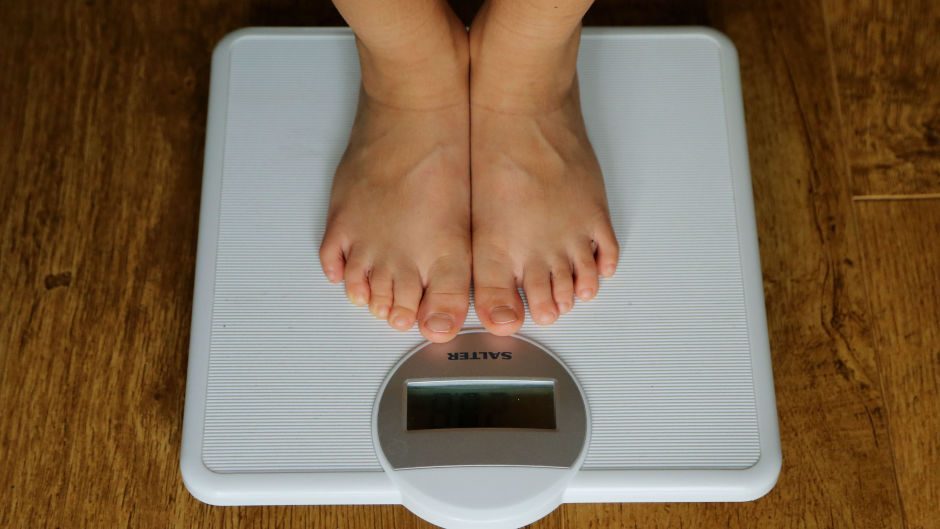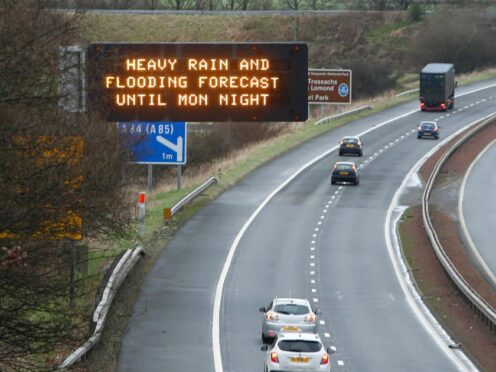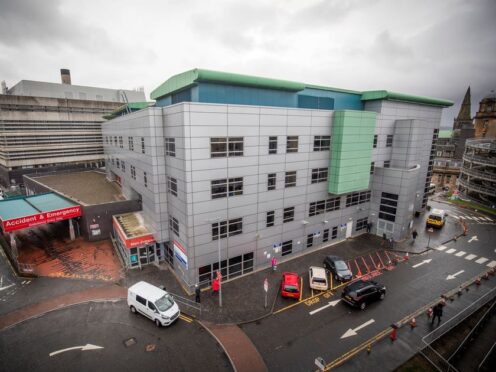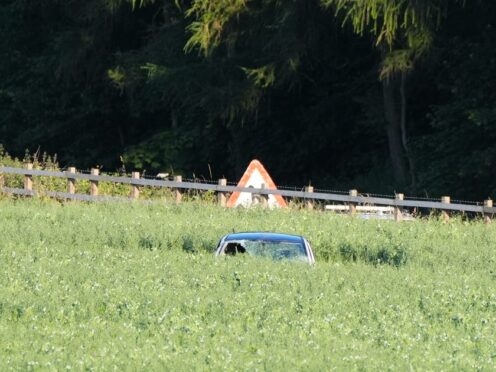Scores of people have gone online to find out more about bowel cancer following the death of Dame Deborah James this week.
Dame Deborah, known as Bowelbabe, died on Tuesday aged 40 after being diagnosed with bowel cancer in 2016. She had co-hosted the You, Me And The Big C podcast with Lauren Mahon and Rachael Bland.
As more and more people look for information we want to tell you more about the disease – and its symptoms, and point you to professional sources for information.
You can read about Dame Deborah and her life here.
About bowel cancer
Bowel cancer is a general term for cancer that begins in the large bowel.
Depending on where the cancer starts, bowel cancer is sometimes called colon or rectal cancer.
To read more about an Aberdeen-based specialist’s view on bowel cancer, and risks, click here.
Cancer can sometimes start in the small bowel, small intestine, but small bowel cancer is much rarer than large bowel cancer.
Bowel cancer is one of the most common types of cancer diagnosed in the UK.
Signs and symptoms
The three main symptoms of bowel cancer are:
- blood in the stools (poo/faeces)
- changes in bowel habit – such as more frequent
- looser stools – and abdominal (tummy) pain
However, these symptoms are very common and most people with them do not have bowel cancer. For example, blood in the stools is more often caused by haemorrhoids (piles), and a change in bowel habit or abdominal pain is usually the result of something you have eaten.
As almost nine out of 10 people with bowel cancer are over the age of 60, these symptoms are more important as people get older. They are also more significant when they persist despite simple treatments.
Most people who are eventually diagnosed with bowel cancer have one of the following combinations of symptoms:
- a persistent change in bowel habit that causes them to go to the toilet more often and pass looser stools, usually together with blood on or in their stools
- a persistent change in bowel habit without blood in their stools, but with abdominal pain
- blood in the stools without other haemorrhoid symptoms, such as soreness, discomfort, pain, itching or a lump hanging down outside the back passage
- abdominal pain, discomfort or bloating always provoked by eating, sometimes resulting in a reduction in the amount of food eaten and weight loss
The symptoms of bowel cancer can be subtle and don’t necessarily make you feel ill.
When to seek medical advice
Go to your GP for advice as soon as you have any of the symptoms.
Your doctor will probably carry out a simple examination of your tummy and bottom to make sure you have no lumps.
They may also arrange for a simple blood test to check for iron deficiency anaemia. This can indicate whether there is any bleeding from your bowel that you haven’t been aware of.
In some cases, your doctor may decide it is best for you to have a simple test in hospital to make sure there is no serious cause for your symptoms.
Make sure you return to your doctor if your symptoms persist or keep coming back after stopping treatment, regardless of their severity or your age.
Read more about diagnosing bowel cancer.
Who’s at risk?
It’s not known exactly what causes bowel cancer, but there are a number of things that can increase your risk.
- age – almost nine in 10 cases of bowel cancer occur in people aged 60 or over
- diet – a diet high in red or processed meats and low in fibre can increase your risk
- weight – bowel cancer is more common in people who are overweight or obese
exercise – being inactive increases the risk of getting bowel cancer - alcohol and smoking – a high alcohol intake and smoking may increase your chances of getting bowel cancer
- family history – having a close relative (mother or father, brother or sister) who developed bowel cancer under the age of 50 puts you at a greater lifetime risk of developing the condition
- Some people have an increased risk of bowel cancer because they have another condition that affects their bowel, such as severe ulcerative colitis or Crohn’s disease, over a long period of time.
Read more about the causes of bowel cancer and preventing bowel cancer
Bowel cancer screening
Bowel screening is offered to men and women aged 50 to 74 across Scotland to help find bowel cancer early when it can often be cured.
Bowel screening involves taking a simple test at home every 2 years. The test looks for hidden blood in your poo, as this could mean a higher chance of bowel cancer.
Read more about screening for bowel cancer
Treatment
Bowel cancer can be treated using a combination of different treatments, depending on where the cancer is in your bowel and how far it has spread.
The main treatments are:
- surgery – the cancerous section of bowel is removed; it is the most effective way of curing bowel cancer, and is all that many people need
- chemotherapy – where medication is used to kill cancer cells
- radiotherapy – where radiation is used to kill cancer cells
- biological treatments – a newer type of medication that increases the effectiveness of chemotherapy and prevents the cancer spreading
- As with most types of cancer, the chances of a complete cure depends on how far it has advanced by the time it is diagnosed.
A reliable source of information for people in Scotland in regard to bowel cancer is NHS Inform.
People can also request a bowel cancer screening test kit on the site here.
For even more information
A reliable source of information for people in Scotland in regards to bowel cancer is NHS Inform.
Dame Deborah James was a patron of Bowel Cancer UK.













Conversation